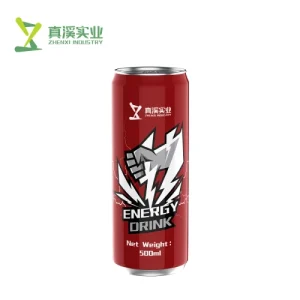The energy drink market is continuously evolving, with new ingredients emerging to cater to consumer preferences for healthier, more natural options. Recent trends reflect a shift away from traditional high-sugar, high-caffeine formulations to drinks that offer a range of health benefits while still providing the requisite energy boost. Here are some of the most popular and innovative ingredients currently trending in energy drinks.
Natural Caffeine Sources
Traditional synthetic caffeine is being replaced by natural sources like green coffee beans, green tea, guarana, and yerba mate. These sources not only provide a smoother boost in energy but also contain antioxidants and other health-promoting compounds. For example, guarana contains about twice the concentration of caffeine found in coffee beans, typically around 3.6% to 5.8% caffeine by weight, compared to 1% to 2% in coffee beans.
Adaptogens
Adaptogens are natural substances that help the body adapt to stress and to exert a normalizing effect upon bodily processes. Common adaptogens used in energy drinks include ginseng, ashwagandha, and rhodiola rosea. These herbs are not only believed to increase energy and stamina but also improve mental clarity and reduce fatigue. Sales of drinks containing these ingredients have seen an increase of up to 20% in the past year as consumers look for solutions that support long-term wellness.
Amino Acids
Amino acids such as taurine and L-theanine are increasingly popular in energy drinks. Taurine, often used in combination with caffeine, can enhance mental performance and reaction speed. L-theanine, found in green tea, is known for its ability to promote relaxation without drowsiness. It's also shown to improve focus and attention, making it a favored addition in drinks targeted at gamers and professionals.
B-Vitamins
B-vitamins play a vital role in energy metabolism. Most energy drinks include a blend of B-vitamins like B3 (niacin), B6, and B12, which help the body convert food into energy more efficiently. B12, in particular, is essential for the production of energy at the cellular level and is a common ingredient in energy drinks aiming to boost both physical and mental energy.
Electrolytes
For energy drinks targeted at athletes and fitness enthusiasts, electrolytes such as sodium, potassium, and magnesium are crucial. They help rehydrate the body and replace minerals lost through sweat, improving recovery time and maintaining muscle function. The inclusion of electrolytes is particularly appealing in energy drinks designed for consumption during or after exercise.
No-Calorie Sweeteners
As consumers become more calorie-conscious, the use of no-calorie sweeteners in energy drinks is increasing. Stevia, erythritol, and monk fruit are popular choices because they provide the sweetness consumers desire without the added calories of sugar. These natural sweeteners are gaining preference over artificial ones like aspartame and sucralose, due to their perceived health benefits and minimal aftertaste.
CBD and Hemp Extracts
Although still controversial and regulated differently across regions, CBD and hemp extracts are starting to make their way into energy drinks. They are touted for their potential to reduce inflammation, decrease anxiety, and improve mood, aligning with the growing consumer interest in functional and wellness beverages.
For beverage manufacturers, keeping abreast of these ingredient trends is crucial to staying competitive in a fast-paced market. Partnering with a cutting-edge energy drink supplier that can provide the latest in ingredient innovation can help brands develop products that meet modern consumer demands while maintaining an edge over competitors.
